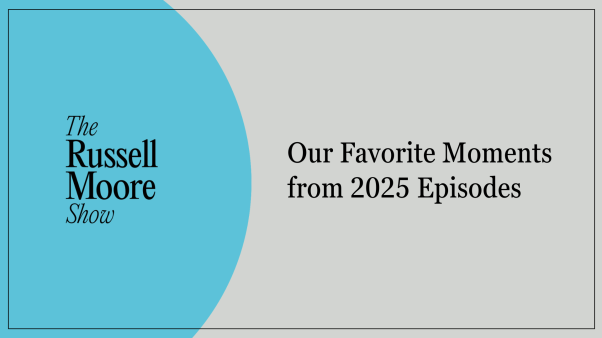Got a question? Email advice@christianitytoday.com to ask CT’s advice columnists. Queries may be edited for brevity and clarity.
Q: I’m concerned that if I use artificial intelligence to write, I’ll miss out on growth that comes from doing the work myself. Is this alone a legitimate reason for Christians to avoid AI in creative processes? Also, what about more explicitly spiritual or theological work? Should preachers disclose when their sermon is generated by AI? What if it’s just AI-polished or AI-copyedited? —Curious in California
Karen Swallow Prior: Your question addresses two separate but connected topics: the craft of writing and the ethics of writing.
First, just as with spiritual growth and maturity, the craft of writing offers no shortcuts. AI might be a useful tool in some cases, but it can never replace one’s own knowledge and skills. Similar to using a spell checker, you have to know enough of the craft to recognize whether or not a tool’s effects are correct and good.
Second, in terms of ethics, sources should always be acknowledged. Failure to cite any source (beyond what is common knowledge) constitutes plagiarism, which sadly is prevalent even in the church. Citing sources gives credit where credit is due and offers transparency regarding the authorities to which you’ve appealed. (Citations don’t need to be formal but can be passingly mentioned, as is usually done in sermons and speeches.) Would you be willing to cite AI as a source in your work? If not, ask yourself why not.
Moreover, because AI increasingly relies on copyrighted material taken without the authors’ permission, in using AI, you may be stealing someone else’s work, even if you don’t know whose work it is.
Finally, these two issues can be considered together in connection to your purpose in writing. If you are simply compiling previously existing information, then do so and credit whatever sources you choose. If, however, you write to create something new or to refine your thinking, then AI likely hinders that work.
 Illustration by Jack Richardson
Illustration by Jack RichardsonKaren Swallow Prior lives in rural Virginia with her husband, two dogs, and several chickens. Following a decades-long vocation as an English professor, Karen now speaks and writes full-time
Q: I’m a solo pastor and would love to keep pastoring, but my wife needs a break from ministry life for health reasons. However, I don’t have an alternative line of work to fall back on, and we need income. I wonder whether churches with vacant pulpits are willing to hire a pastor in a situation like mine, where the spouse won’t be involved. Do you have advice for ministry families like ours? —Muddled in Missouri
Kevin Antlitz: From one pastor to another, I commend you for prioritizing your family. Far too often, pastors sacrifice their families for the sake of “the ministry.” This is a grave error. Without idolizing family, ensuring your family is in a position to thrive should be one of your top priorities. This should also be a priority for the church!
Working as a pastor is such a great and unusual vocation. I don’t know of any other job that takes into account a person’s family as much as churches can do with pastors, if they so choose.
And given the nature of the job and the biblical qualifications for such a position (1 Tim. 3:1–7), this makes sense. However, the healthiest churches and pastors have a clear sense of boundaries over what is expected of a pastor’s family.
Before assuming you must leave your role, why not speak with your wife and the church leadership to see if your work can be reimagined? There may be a way for you to continue doing your work but with different rhythms for this season.
If they are unwilling or simply unable to accommodate this, then I think the wise move is to find another way to earn your daily bread. The Lord will honor this, and managing your household well will make you eminently qualified to take another pastoral role in the future.
 Illustration by Jack Richardson
Illustration by Jack RichardsonKevin Antlitz is an Anglican priest at a Pittsburgh church positively overflowing with kids. He and his wife have three young children who they pray will never know a day apart from Jesus.
Q: I have a few friends who know and follow Jesus—and live with their boyfriends. This is so normal in today’s culture that it’s become “normal” in many Christian communities too. But as their friend, what should I do? I’m afraid to call them out for fear of being too prudish or worrying too much about the speck in my sister’s eye. —Iffy in Indiana
Kiara John-Charles: It’s sad and discouraging when we see brothers and sisters in Christ following secular culture’s standards for relationships instead of God’s will (Rom. 12:2). However, you can stand firm in your convictions without fear of seeming prudish, knowing that God honors obedience and the desire to live a holy life
(1 Cor. 16:13–14). Your example of a different approach to relationships serves as a powerful witness to God’s purpose for our lives.
Commit to praying for your friends, understanding that your prayers are powerful and effective (James 5:16). Ask God to reveal his truth to their hearts and guide them toward a life that honors him.
Whether you should directly address the issue may depend on the depth of your friendships. Sometimes God is already working in someone’s heart, and approaching a conversation too soon can be a misstep. Have you ever talked together about faith in the past? If you have a history of good, tough conversations, your friends might be receptive to your intervention here.
If you do sense God leading you to speak, take time to reflect on your intentions. Ask questions, and make sure you have your facts straight. You have a perception of your friends’ relationships with God and their boyfriends, but you may not have all the information. And ultimately, it is the Holy Spirit’s job to bring change from the inside out (John 14:26; 1 Cor. 3:6–7).
 Illustration by Jack Richardson
Illustration by Jack RichardsonKiara John-Charles is an LA native with Caribbean roots and a love for travel and food. She works as a pediatric occupational therapist and serves at her local church in Long Beach, California.
















